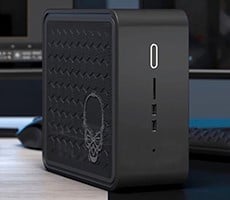Dell XPS 18 Portable All-in-One: Haswell Reloaded
Futuremark’s PCMark 7 benchmark includes a suite of tests designed to measure the way your computer would perform during typical tasks. It includes an Entertainment Suite, which offers gaming scenarios and tests its media playback capabilities. The benchmark also has a Creativity Suite, in which the system processes images and video. Other tools include the Computation Suite and the Storage Suite. The latter is capable of measure SSDs and hard drives, either individually, or as a whole.
|

It scored more than a 1,000 points higher than the previous model, putting it in second place and within view of the top spot. A dedicated SSD -- especially a fast one -- is certainly the way to go for optimum performance, and the upgrade to a faster, newer generation processor paid dividends as well.
|
As a gaming benchmark, 3DMark 11 puts extra emphasis on your system’s handling of DirectX 11. But it measures more than the graphics card’s performance (the processor can make a big difference to a score, for example) and is a good way to get a feel for a system both as a gaming PC and as a general-use computer. Futuremark recently updated 3DMark 11 to support Windows 8, so if you plan to run this test on your own Windows 8 system, be sure to get the latest version.

That said, the new flagship does show some pixel pushing promise. In 3DMark 11, it scored 72 percent higher than the previous model, part of which is due to the bump up to Intel HD Graphics 4400.
|
Since it's a relatively new benchmark, we don't have enough all-in-one comparison points to flesh out a graph, though we're including the results of the XPS 18 Portable here both for future reference and in case you want to run your own comparisons at home.
From what we have seen, however, the scores above are where they should be based on the hardware inside. In other words, there are not troubling outliers that could mean something is amiss or misfiring.











